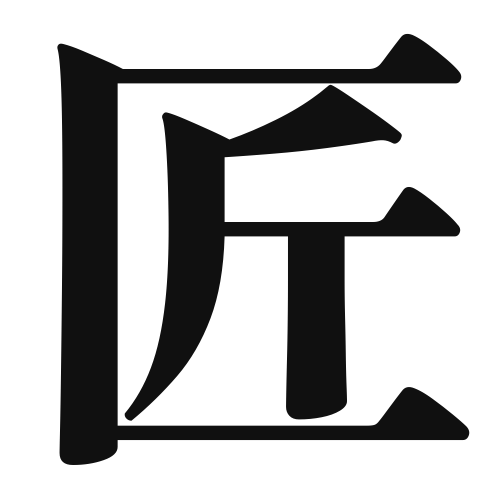1. Overview of Meaning
The kanji “匠” (shō) means “artisan” or “craftsman.” It represents a person who is skilled in a particular craft or trade, often associated with traditional craftsmanship and artistry.
2. Formation and Radical
Formation of the Kanji: The kanji “匠” is a phonetic-ideographic character (形声文字). It combines the meaning of craftsmanship with a phonetic component that suggests its pronunciation.
Radical: The radical for “匠” is “匚” (hako), which is related to enclosures or containers, symbolizing the idea of creating or crafting something within a defined space.
3. Examples of Usage
Common Words and Phrases: Some common words that include “匠” are “匠人” (shōnin – artisan) and “匠技” (shōgi – craftsmanship).
Example Sentence in Daily Conversation: “彼は素晴らしい匠です。” (Kare wa subarashii shō desu – He is a wonderful craftsman.)
4. Synonyms and Antonyms
Similar Kanji: A similar kanji is “職人” (shokunin), which also means “artisan” but can imply a broader range of skilled workers, not limited to traditional crafts.
Opposite Kanji: An antonym could be “素人” (shirōto), meaning “amateur” or “novice,” indicating someone who lacks professional skills or expertise.
5. Cultural and Historical Background
Relation to Japanese Culture: The concept of “匠” is deeply rooted in Japanese culture, where craftsmanship is highly valued. Traditional arts such as pottery, woodworking, and textiles often emphasize the skill of the artisan.
Proverbs and Idioms: One relevant proverb is “匠は道具を選ぶ” (Shō wa dōgu o erabu – A craftsman chooses his tools), highlighting the importance of quality tools in achieving mastery in a craft.
